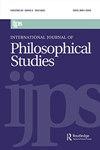如何看待气候变化?气候情绪的规范性分析
IF 0.6
3区 哲学
0 PHILOSOPHY
INTERNATIONAL JOURNAL OF PHILOSOPHICAL STUDIES
Pub Date : 2022-05-27
DOI:10.1080/09672559.2022.2125150
引用次数: 1
摘要
摘要气候变化唤起人们不同的情绪。最近,气候情绪已经成为公众辩论中的一个规范性审查问题。这种现象,我们称之为气候情绪的规范化,表现在两个层面。在个人层面上,人们面临着情感困境,在这种情况下,他们真的不确定面对气候变化的正确感受。在集体层面,公开辩论反映了在气候背景下,对哪些情绪适合感受的分歧。本文的目的是通过结合哲学和心理学的规范性标准,如基于理性的标准和后果主义的标准,来检验有利于不同气候情绪的规范性原因。我们的结论是,这些标准提供了支持或反对不同气候情绪的部分原因,每个标准的适用性将取决于各种考虑因素,包括情绪指向的特定对象。我们认为,气候背景下的情绪分歧可能会产生不信任,可能会阻碍气候行动的合作。我们建议,如果我们接受气候情绪的复杂性质及其规范性理由,我们可以缓解这样的挑战。本文章由计算机程序翻译,如有差异,请以英文原文为准。
How to Feel About Climate Change? An Analysis of the Normativity of Climate Emotions
ABSTRACT Climate change evokes different emotions in people. Recently, climate emotions have become a matter of normative scrutiny in the public debate. This phenomenon, which we refer to as the normativization of climate emotions, manifests at two levels. At the individual level, people are faced with affective dilemmas, situations where they are genuinely uncertain about what is the right way to feel in the face of climate change. At the collective level, the public debate reflects disagreement about which emotions are appropriate to feel in the climate context. The aim of this paper is to examine the normative reasons in favour of different climate emotions by combining normative criteria from philosophy and psychology, such as rationality-based and consequentialist ones. We conclude that these criteria provide partial reasons for or against different climate emotions and that the suitability of each criterion will depend on various considerations, including the specific object that the emotion is directed to. We suggest that emotional disagreement in climate contexts may generate distrust, potentially hindering cooperation for climate action. We propose that we can ease challenges like this if we come to terms with the complex nature of climate emotions and their normative justification.
求助全文
通过发布文献求助,成功后即可免费获取论文全文。
去求助
来源期刊

INTERNATIONAL JOURNAL OF PHILOSOPHICAL STUDIES
PHILOSOPHY-
CiteScore
0.90
自引率
0.00%
发文量
29
期刊介绍:
The International Journal of Philosophical Studies (IJPS) publishes academic articles of the highest quality from both analytic and continental traditions and provides a forum for publishing on a broader range of issues than is currently available in philosophical journals. IJPS also publishes annual special issues devoted to key thematic areas or to critical engagements with contemporary philosophers of note. Through its Discussion section, it provides a lively forum for exchange of ideas and encourages dialogue and mutual comprehension across all philosophical traditions. The journal also contains an extensive book review section, including occasional book symposia. It also provides Critical Notices which review major books or themes in depth.
 求助内容:
求助内容: 应助结果提醒方式:
应助结果提醒方式:


